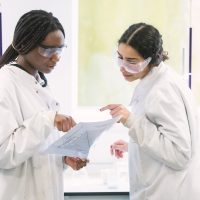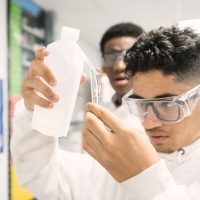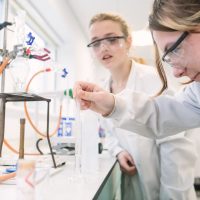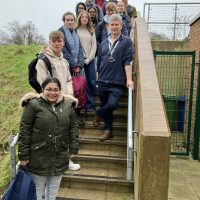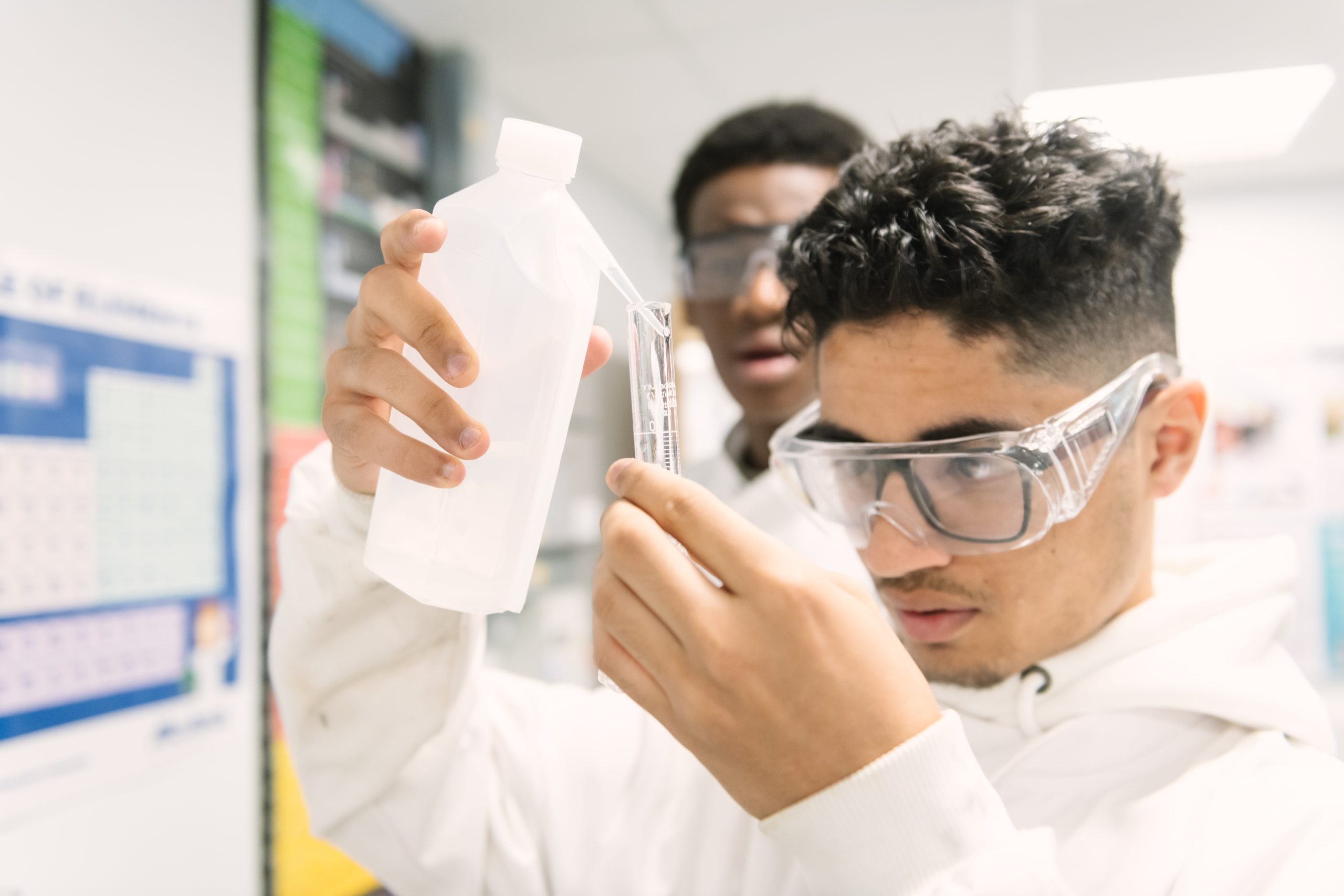
Chemistry
Why you would study Chemistry? Chemistry has worldwide impact. As a fundamental physical science it has a lasting effect on our planet and will be needed to help tackle the challenges society faces in changes to environment, food security and energy supply. Almost every new technological change and important discovery has its foundations in Chemistry.
Chemistry is the key to life and making the world a better place in which to live. It provides the basis for medicine, agriculture, food technology, environmental science, forensic science and many other fields. Having a chemistry qualification is like having an open flight ticket to any destination in the world!
Years 1 & 2
- Atomic structure
- Bonding
- Periodic table
- Mole theory
- Organic chemistry
- Analysis
- Equilibria
- Rates (kinetics)
- Energetics
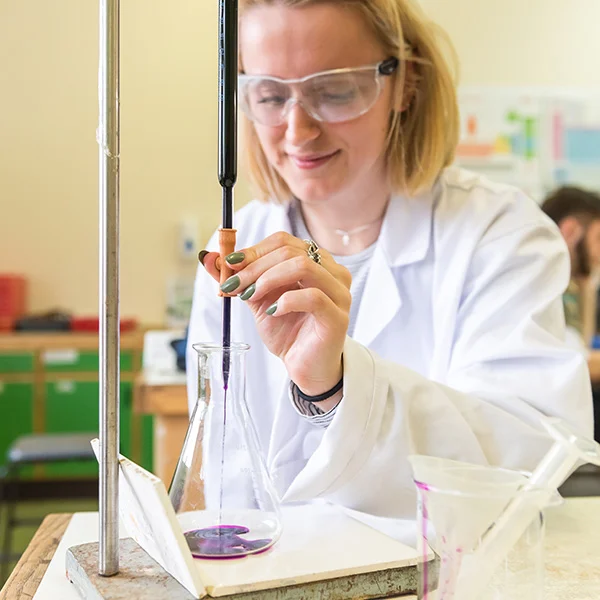
Anya-Niamh Tidey
Studied: Biology, Chemistry, Physics + EPQ
Progression: Medicine at St. George's College, University of London
Anya Says: “I chose to study at Varndean because of the strong Science department and the support offered for aspiring medicine applicants. I have always been interested in the sciences, so it was a natural progression for me to want to study medicine. I have enjoyed the diversity of teaching methods and the enthusiasm of the teaching staff in supporting us to succeed. I like the practical aspect of each of the sciences; the practicals are engaging and fun and support the theory. I have been on a Physics/Maths trip to CERN in Geneva, as well as the United Nations. I have also attended the Chemistry Conferences run by Varndean and Brighton University, taken part in two Chemistry analytical competitions run by the RSC, as well as the Cambridge Chemistry Challenge. Outside of college, I was recently awarded a seven year scholarship by The Army, which entailed interviews, physical ability tests and cognitive assessments. The scholarship provides me with funding for my final year at Varndean and throughout my entire six years medical degree. After this I intend to train as a military doctor in The Army.” Anya-Niamh in 2018 was the recipient of a seven year bursary from The Army to help fund her studies to become a doctor in the armed forces. Anya-Niamh was also recently the winner of Uptree’s ‘Young Scientist of the Year’ Future Talent Award.
Course Essentials
Courses Available
A Level
PLUS
PLUS
Students may also need to attend additional Maths support class, as required.
How The Course is Assessed
100% exam, including practical work
Career Pathways
Many students go on to degree courses in Chemistry, Biochemistry, Medicine and medically related subjects, Food Technology, Environmental Science, Engineering, Agriculture, Law and Forensic Science.
Transferable Skills
Chemistry graduates earn around 30% more during their career due to these skills: Intellectual, Communication, Organisational, Interpersonal, Research, Numeracy, IT.
Other Information
Opportunities exist to undertake project work at both local universities and to take part in the Chemistry Olympiad, C3L6 and the Analytical competitions. There are trips to conferences and lectures.
Enquiries To
Roseanne Briffitt: reb@varndean.ac.uk
News
Varndean students excel in 2024 Chemistry Olympiad
Twenty one Varndean A Level and IB Chemistry students entered the 2024 Royal Society of Chemistry Olympiad in January and won 3 Gold, 15 Silver and 3 Bronze awards.
The Chemistry Olympiad is open to schools and colleges throughout the UK, aimed at those students in their last year of study before higher education. The competition is designed to challenge students, develop their thinking and problem-solving skills, and test their knowledge of chemistry in real-world situations. To receive a Bronze award, participants have to score between 10-17 marks, Silver 18-29, and for the prestigious Gold award 30 plus.
There were a staggering 14,915 applicants from 1,025 schools across the UK, a fantastic new participation record.
Pictured are just some of the students who took part, alongside their Chemistry tutor, John Luton. Congratulations to everyone, very well deserved.

